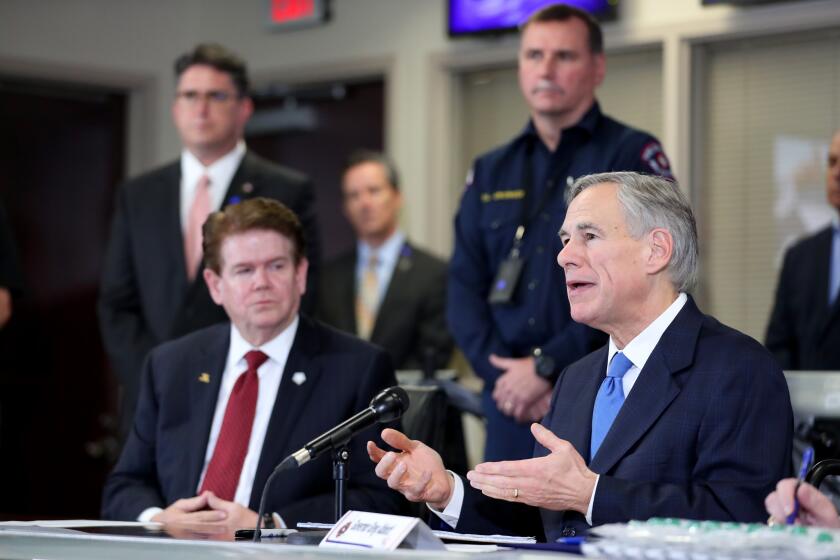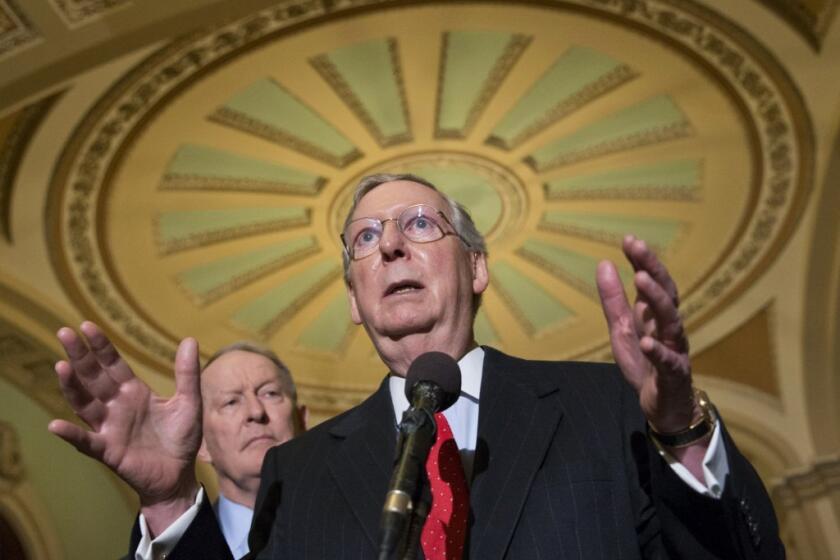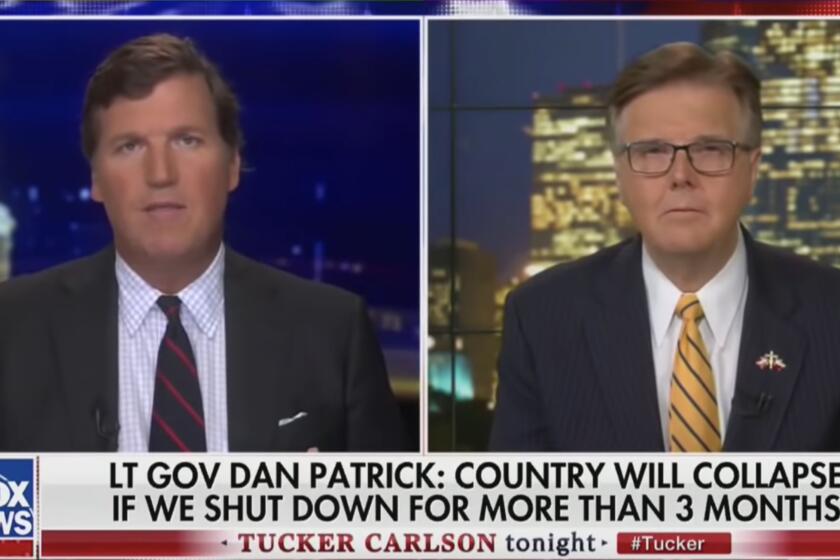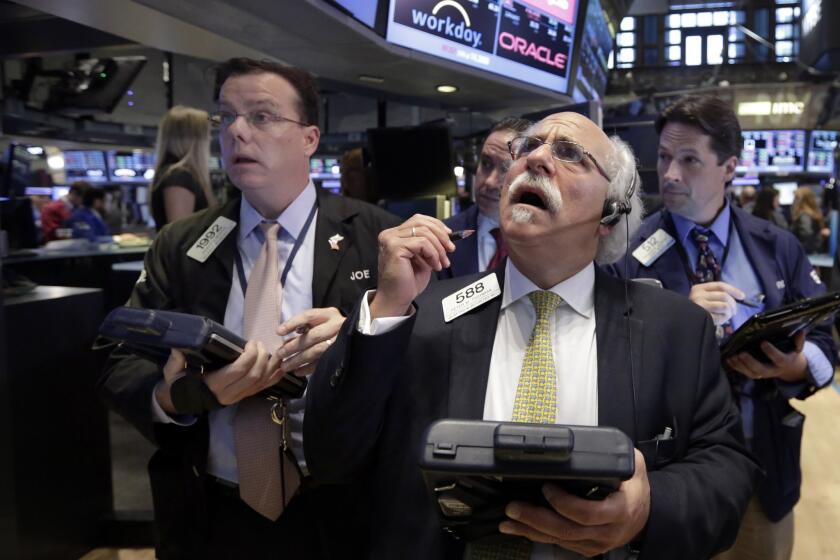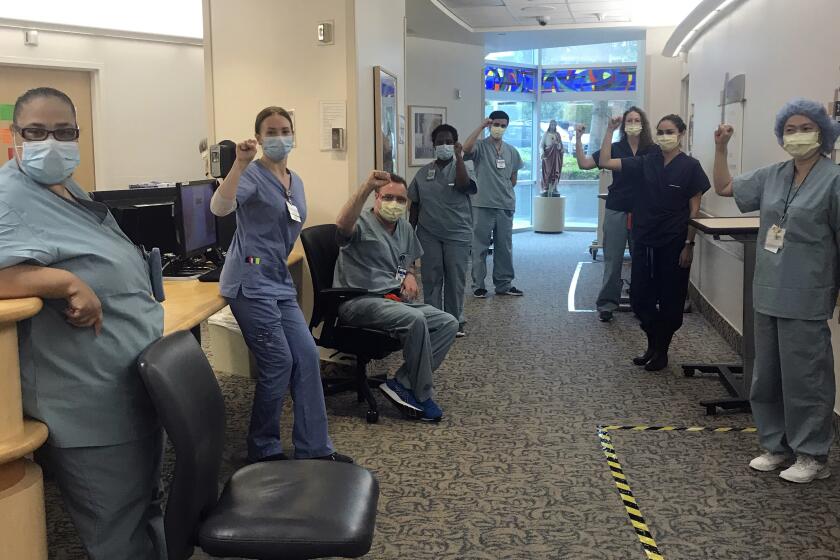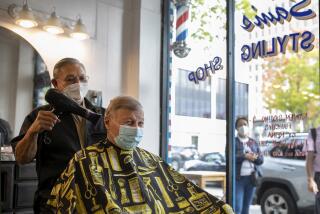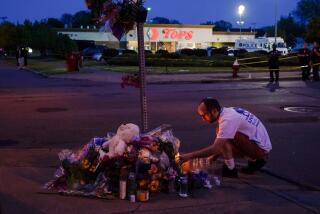Column: America’s tolerance for mass murder is the coronavirus’ best friend
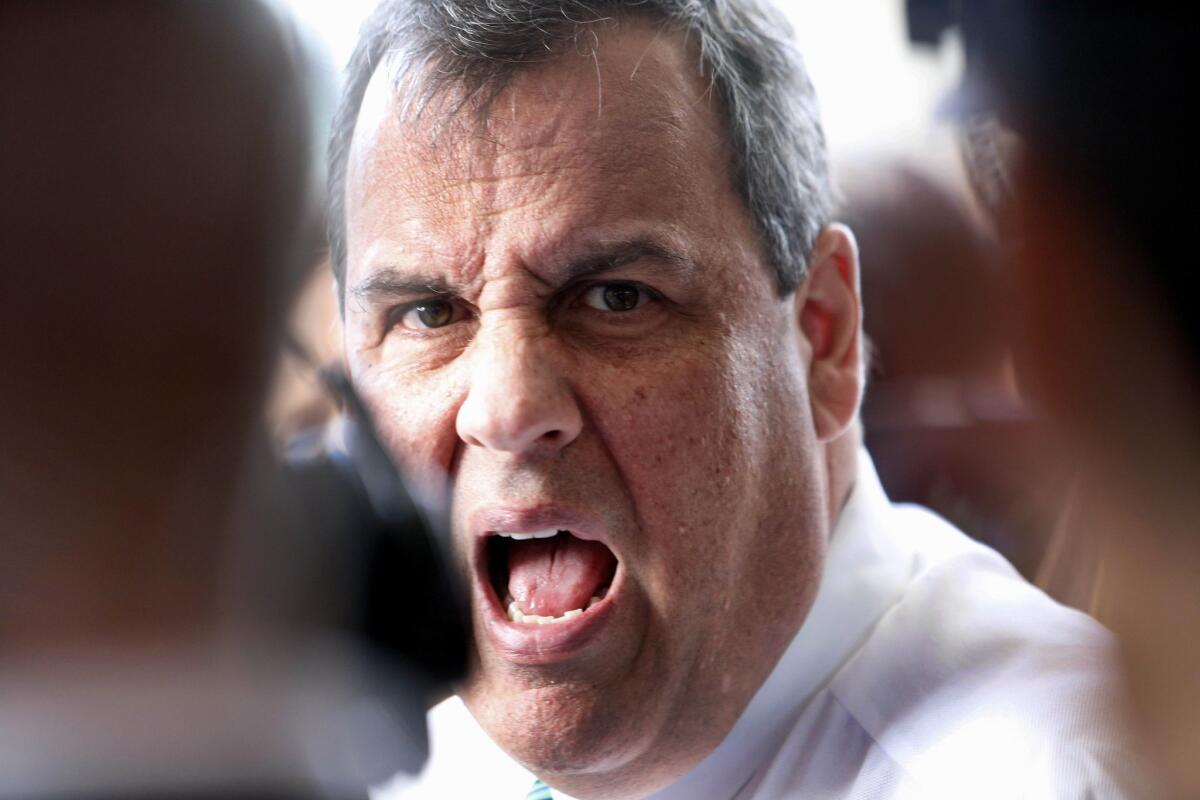
- Share via
It was widely observed, following a certain event in a Connecticut elementary school on Dec. 14, 2012, that if America would tolerate the slaughter by gunfire of 20 children aged 6 and 7, it would tolerate anything.
Nothing proves the truth of that observation more than our response to the coronavirus pandemic.
At this moment of maximum peril, we’re tolerating the turning of workers in meatpacking plants and grocery stores, seniors in nursing homes and heedless churchgoers into sacrificial offerings to the gods of “freedom” and “choice.”
Systemic inequality has been around far longer than Covid-19, and its deep fault lines are ripe for exploitation by this new menace.
— Maeve Higgins
Grandparents are being counseled to give up their lives “in exchange for keeping the America that all Americans love for your children and grandchildren.” Those are the words of Texas Lt. Gov. Dan Patrick, who added during an interview on Fox News: “If that’s the exchange, I’m all in.”
Of course, Patrick wasn’t “all in.” He gave the interview from the security and safety of a sequestered location, not while helping nurses struggle in close quarters, without adequate protective equipment, to pass an oxygen tube down the trachea of a COVID-19 patient.
By removing unemployment benefits, states are forcing workers to risk their lives
These thoughts are prompted by a tweet from Andy Slavitt, who was chief of Medicaid, Medicare and the Affordable Care Act during the Obama administration and currently one of our most reliable purveyors of accurate information about coronavirus policy.
“One thing is clear,” Slavitt wrote this week. “Our government has a higher tolerance for unnecessary deaths than other countries. School shootings, shootings in church, at concerts, in night clubs. People in nursing homes. Meat plants. Prisons.”
Slavitt was highlighting the locations that have become hot spots of COVID-19 infection — nursing homes, meat plants and prisons. These happen to be locations traditionally out of reach of effective government regulation or enforcement.

They’re overcrowded and understaffed, their workforces or occupants treated as second class — meat factory workers have been denigrated as non-Americans because they’re immigrants; seniors because their contributions to the economy have ended and they’re this close to shuffling off their mortal coils anyway; prisoners because, well, if they were fine upstanding citizens they wouldn’t be behind bars in the first place, would they?
What connects the dots between those circumstances and America’s tolerance for mass murder is the notion that these conditions all apply to someone else.
Not even low-wage native-born Americans think they have much in common with immigrant workers in meat plants. As we’ve reported, in the century since Upton Sinclair exposed the medieval conditions in Chicago meatpacking plants in “The Jungle,” not much has changed for workers, because the government’s focus always has been the safety of the product, not the safety of the workers.
At 1.5 million, the population living in nursing homes comes to less than one half of one percent of Americans; though that may be roughly equivalent to the number of families with relatives in homes, for some of them at least, residential nursing care is one way to get on with their lives while the elders finish theirs.
Rightwingers are using the pandemic to attack public workers, again
As for mass shootings, it’s true that when they occur in truly random circumstances, such as at a big music festival in Las Vegas or inside an office or hair salon, the average American may stop for a moment and think: I could have been there. That could have been me. But the feeling soon passes, in part because these outbreaks have become so common that they have lost their ability to shock.
Moreover, even the biggest mass shootings have a local flavor. One elementary school here, a high school there. A crowd at a single entertainment event. An office Christmas party in San Bernardino.
Often, the shooters are identified as people with a specific grievance that manifests in mayhem. This allows the rest of us to think: Well, of course if I saw someone like that hanging around, I’d keep my distance and call the cops.
These psychological distancing techniques allow our political leaders and political cliques to rationalize our social pathologies as merely the cost of serving a higher purpose. Mass shootings are just collateral damage from honoring the 2nd Amendment.
(Never mind that invoking the 2nd Amendment as justification for eliminating sane firearms regulations is a relatively recent phenomenon, popularized and expanded by right-wing legislative advocates and via a constitutionally dubious 2008 Supreme Court opinion written by the late Justice Antonin Scalia for a 5-4 majority.)
Starting with President Trump, the GOP is calling to put millions at risk of contracting coronavirusso the stock market recovers.
The same thought process seems to be animating the Trump administration’s credo of inaction in the face of the pandemic, as well as Republican resistance to funding more stimulus payments for the working class or financial assistance for state and local governments.
The higher principles, supposedly, include the placing of responsibility in the hands of the states rather the federal government, and the states’ responsibilities to not be “very badly” run, to quote Trump.
Then there’s the old GOP standby of the “undeserving poor”: Several congressional Republicans initially resisted the bump-up of unemployment benefits by $600 a week, enacted via the CARES Act, by positing that this would encourage workers to laze around rather than go back to work — even though the whole point was to allow workers to stay home to fight the spread of disease.
Let’s be clear: Refusing to cover the expenses incurred by states coast-to-coast from battling the virus — an effort forced upon them by the Trump administration’s inexcusable derelictions — is an attack on working Americans. If the GOP holds to this, it will lead to a shriveling of public services and mass layoffs of public employees.
The idea that America should reopen its economy because the economic damage of the lockdown is worse than the consequences of more infections comes largely from people who aren’t suffering much from the lockdown and can afford to insulate themselves from inspection.
That’s evident from their cavalier assertions that people will die one way or the other, so lockdown versus reopening is a “false choice.”
Those are the words of former Republican New Jersey Gov. Chris Christie. In a Washington Post op-ed, Christie wrote of the need to take “reasonable risks to restore economic prosperity.”
Who decides what’s “reasonable”? Not front-line workers — they’re just taking the risks. The decision and the choice is taken out of their hands by governors who have ordered their workplaces reopened, thereby depriving workers of unemployment benefits if they act on fears for their health and lives by staying home.
The stock market rallied on the unemployment figures because it’s not a moral barometer.
The governors of Texas and Iowa threatened those workers with cutting off their benefits. The state of Ohio has even created a website allowing employers to report employees who don’t come back to work.
Let’s not overlook that the infection and death rates from COVID-19 appear to be higher for black and Latino Americans than for the population as a whole. Why might this be? Because our political leadership has found more expedient the principle that the government shouldn’t provide universal healthcare or a living wage. Political leaders, of course, have both good health coverage and good pay.
Using vulnerable people as medical guinea pigs isn’t a new phenomenon. In 1932, the government launched a study in which it left untreated the syphilis of 400 black men to learn about the natural course of the disease.
The notorious “Tuskegee Experiment” was projected to last six months, but continued for 40 years, during which remedies for syphilis were developed and perfected, but never given to the subjects. They weren’t informed of the risks of even of the nature of their infection.
Is that very much different from today, when the government isn’t providing the public with an accurate assessment of the extent of COVID-19 or an educated picture of possible treatments, but is sending people back to risky workplaces anyway?
Some leaders have taken a principled stand against using ordinary Americans as cannon fodder in a putative “war” against the virus. One is New York Gov. Andrew Cuomo, who said Thursday: “This is not a situation where you can go to the American people and say, ‘How many lives are you willing to lose to reopen the economy?’ We don’t want to lose any lives. You start to hear these, to me, what are absurd arguments.”
Nurses know how unprepared we were for COVID-19. They’re getting punished for speaking out.
Cuomo is right to call out those saddling other people with the consequences of premature of reopening. Does Chris Christie have a choice about how to participate in the reopening? Does he have “freedom”? Of course he does. He has a nice home he can hunker down in for as long as he chooses. Whatever work he does these days can, more likely than not, be done remotely.
It’s not as if Christie is above taking the advantages of wealth and position wherever he finds them; back in 2017, it might be remembered, he closed New Jersey beaches to the public because of a government shutdown prompted by a budget standoff — but that didn’t keep him and his family from enjoying the beach themselves in blessed solitude.
The gap between the privileges that political leaders and government officials claim for themselves and the costs they impose on others hasn’t been this wide since lawmakers who never went into battle themselves advocated sending troops to fight endless wars in Afghanistan and Iraq.
In early April the U.S. Supreme Court, which had closed its own building to the public and decreed that oral arguments would henceforth be heard by teleconference, not in person, overturned a Wisconsin rule that would have given voters there more time to submit ballots by mail for an April 7 vote. Instead, voters, unlike the Justices, had to do their business in person. (An apparent spike in infections seems to have followed.)
As the writer and podcaster Maeve Higgins observes, underlying the back-to-work movement is the fundamental hypocrisy by which we rhetorically praise front-line workers as courageous and indispensable, but show by our actions and policies that we consider them disposable.
“Systemic inequality has been around far longer than Covid-19,” she writes, “and its deep fault lines are ripe for exploitation by this new menace.”
That’s today’s America in a nutshell. We’re willing to uphold certain dearly-held principles--the right to own guns, the right to a safe working environment — as long as they’re granted to those of us who think we can control our own environments and remain safe in our cocoons. All others are on their own.
More to Read
Inside the business of entertainment
The Wide Shot brings you news, analysis and insights on everything from streaming wars to production — and what it all means for the future.
You may occasionally receive promotional content from the Los Angeles Times.

